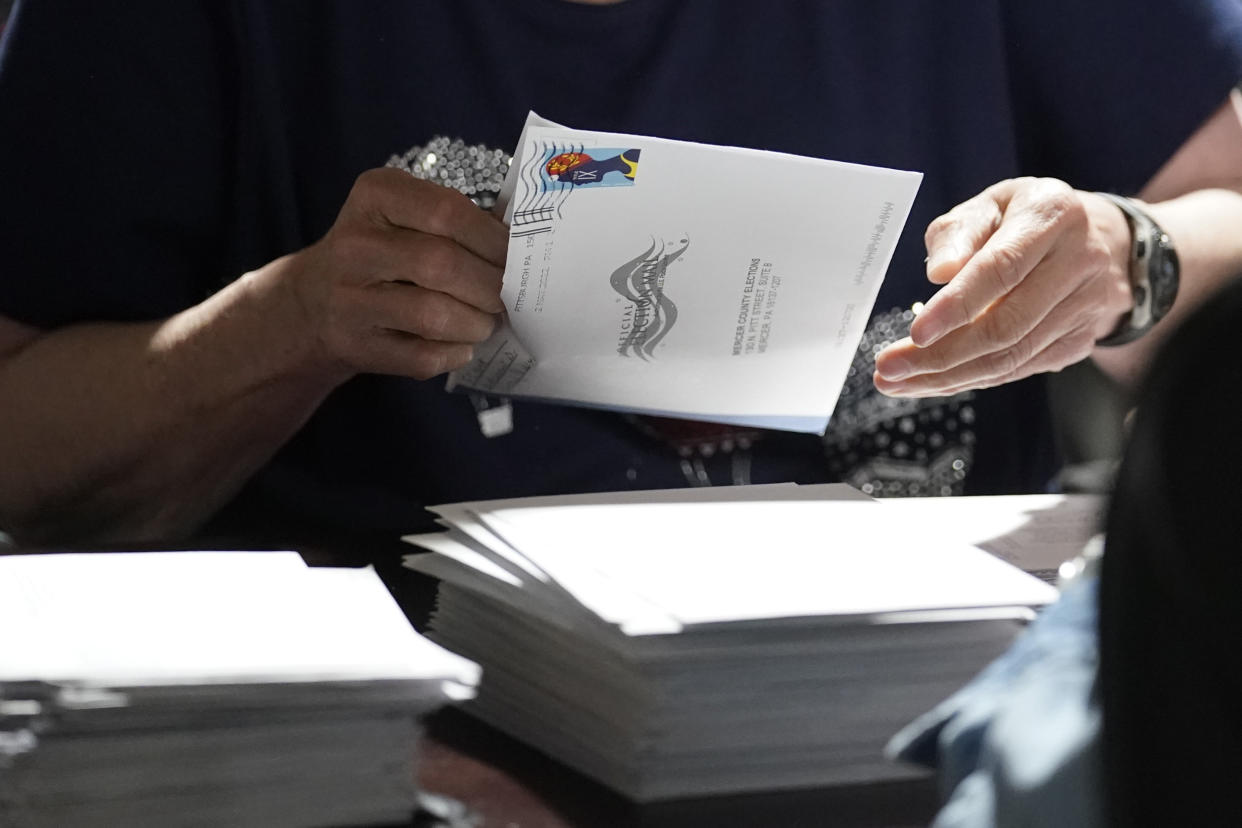Don't fear the recount: Vote check in Pennsylvania is just part of democracy

As the Pennsylvania Republican Senate race heads toward a recount, experts say the recount process rarely changes the outcome once all the votes are cast.
“It's like checking your work on a math test … you just run the exact same ballots through the same process to make sure you achieve the same result,” said Jessica Huseman, editorial director at Votebeat, a nonprofit news organization focused on elections and voting.
“Recounts almost never change the results of an election,” Huseman said, calling them a “quality check.”
Pennsylvania does not have final results yet for the Republican primary for a U.S. Senate seat, and a recount is all but certain.
As of Friday morning, TV celebrity and doctor Mehmet Oz led David McCormick, an Army veteran and former hedge fund CEO, by just over 1,000 votes out of more than 1.3 million ballots cast.

There are a handful of reasons why all votes have not been counted yet.
There were just over 1,000 votes not yet counted in Allegheny County, the state’s second largest, which includes McCormick’s hometown. They have not been counted because of human error that sometimes occurs in election administration, which delayed the reporting of results in 31 precincts out of 1,323. About two-thirds of those precincts reported results Friday morning, but the other third remained outstanding.
Most of the problem comes from election workers failing to take one of two memory sticks out of the voting machines before sealing them, and the process to unseal and collect those memory sticks will take a few more days, according to CBS News.
There are also a few hundred ballots that have not been counted from a few polling places in or around Philadelphia. Usually these votes would not be decisive, but in such a close contest they could be.

There are also 2,000 or so provisional ballots and a small number of military ballots.
And then there are around 10,000 to 15,000 mail ballots that are in the process of being counted. Pennsylvania law makes it impossible to count mail ballots quickly, because it forbids election workers to do anything to prepare the ballots for counting until Election Day, when their energies are focused on running in-person voting.
Voting experts and advocates from both left and right have pushed Pennsylvania Republicans to fix this problem with state law, going back to before the 2020 election. But the GOP-controlled Legislature refused to do so in 2020, and then-President Donald Trump used the delay in the counting of mail ballots after the presidential election to claim there was a problem with the result. He produced no evidence to support this claim.
No matter what the final ballots show, the margin of victory for Oz or McCormick is almost certain to trigger an automatic recount under Pennsylvania law, which says that any result with a lead of half a percentage point of less requires an automatic recount. Oz’s lead is about one-tenth of a percentage point.

Pennsylvania's secretary of state must order a recount by the second Thursday after the election, which would be May 26. It would begin by the third Wednesday after the election, June 1, and would need to be done by the following Tuesday, June 7. The result would be announced the next day, June 8.
Recounts themselves are rare. “Out of the 5,778 statewide general elections between 2000 and 2019, there were 31 statewide recounts,” reported FairVote, a nonpartisan election reform group.
Out of those 31 recounts, three led to a changed result in a statewide race: for U.S. Senate in Minnesota in 2008, for auditor in Vermont in 2006 and for governor in Washington in 2004.
It’s possible that the Pennsylvania result is so close that a handful of ballots that were miscounted or never counted would change the final result during a recount.
But if that happened, it would likely not be the “final word,” Huseman said. The result would end up in the courts.
